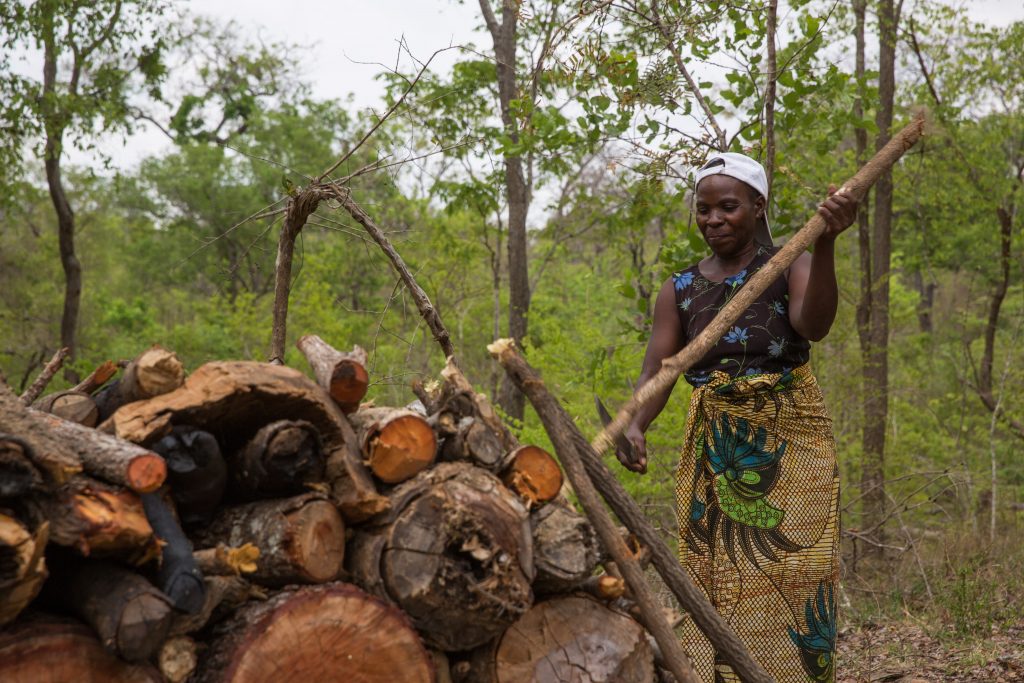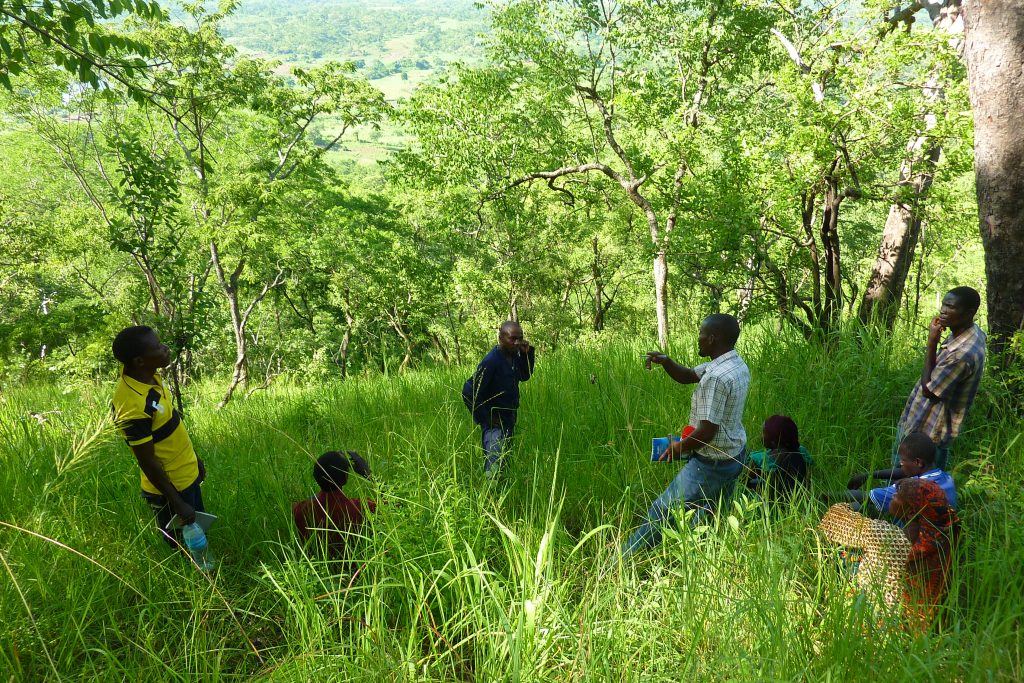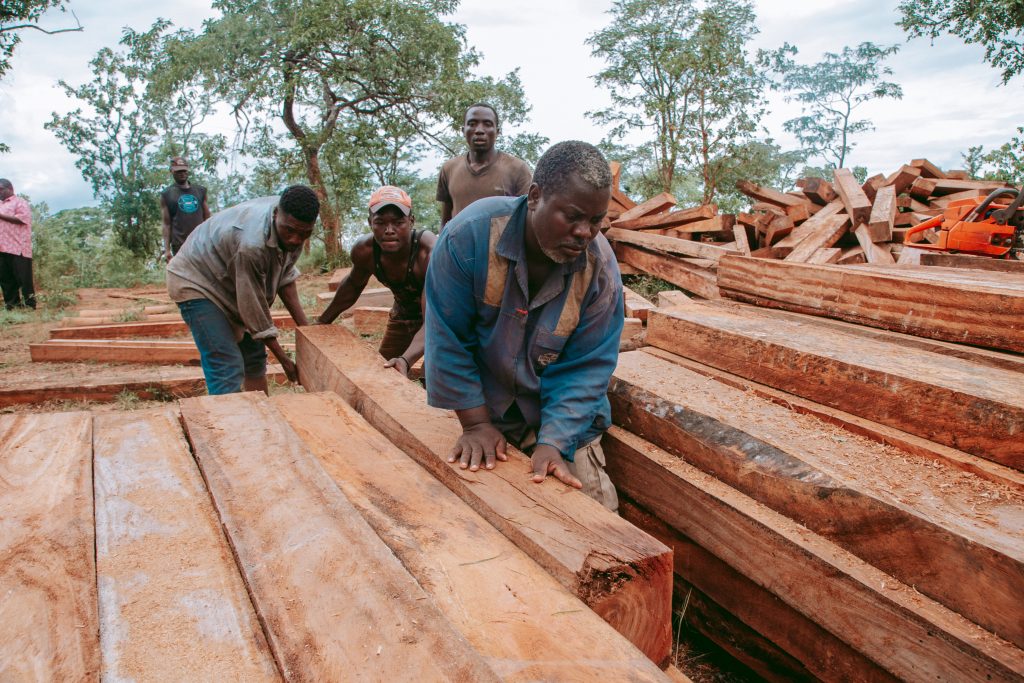Conserving Forests through sustainable, forest-based Enterprise Support in Tanzania- CoForEST (2019-2023)
Background to the CoForEST Project
Between 2012 and 2019, TFCG and MJUMITA implemented a project known as Transforming Tanzania’s Charcoal Sector (TTCS) that aimed at establishing a commercially viable value chain for legally and sustainably produced charcoal and timber. Working in 35 villages in Morogoro Region, the project partners have piloted a model of Community Based Forest Management (CBFM) that integrates sustainable charcoal and timber production. The project resulted in improved forest management, rural employment and community-led development projects.

Following the phasing out of the TTCS project towards the end of 2019, SDC provided more support through the Conserving Forests through sustainable, forest-based Enterprise Support in Tanzania (CoForEST) Project from 2019 to 2023. The focus for the project was to scale-up the model beyond the original three districts and to strengthen mechanisms to sustain the model.
Natural forests play a vital role in sustainable development, climate change mitigation, and climate change adaptation. There were ~32 million hectares of forest and woodland in Tanzania in 2012. Despite the importance of these forests, they are being cleared at a rate of ~1.3% per year. Most deforestation occurs in the village land and is driven by demand for agricultural land.
Forest-based enterprises such as charcoal production and timber harvesting in sustainably managed forests have the potential to generate employment and incomes for rural communities and to incentivize communities to choose to allocate some of their land for natural forest conservation. Community-based forest management (CBFM) is the policy tool designed to promote sustainable management of forests on village land.
CoForEST Project Overview
Project Goal: Sustainable, pro-community natural forest management that transforms the economics and governance of forest product value chains and contributes to climate change mitigation and adaptation.

The CoForEST project is designed to contribute to Tanzania’s development vision by supporting domestic value chains in forest products including sustainable charcoal and timber. The project seeks to achieve the project goal through three inter-connected outcomes:
Outcome 1: Scaling-up CBFM and piloting a sustainable financing mechanism
The capacity of national, regional and local authorities and community members is strengthened to implement and scale-up CBFM in ways that diversify livelihoods and reduce deforestation.
Outcome 2: Dialogue on supportive policies and sustainable financing
A supportive policy framework and financing mechanism for community-based forest management and sustainable natural forest-based enterprises is in place.
Outcome 3: Research, monitoring and learning
Research and learning institutions in Tanzania are generating new knowledge about enterprise-oriented CBFM and are integrating this in student learning.
What is Community- based forest Management?
Under Tanzanian law, communities have the right to establish village land forest reserves (VLFRs). The community is then responsible for managing the forest and may collect and retain revenues from forest products. Revenue from harvesting permits is used to pay for reserve management and community development projects.

What are sustainable forest- based enterprises?
The CoForEST harvesting model aims to sustain the biodiversity and other ecosystem services provided by natural woodland. By combining our understanding of miombo woodland ecology and standard forestry methods, the project has piloted sustainable timber and charcoal harvesting. After an area is harvested, natural regeneration is encouraged through careful fire management and the exclusion of other disturbances such as livestock and agriculture.

Project Area
The project operated at a national-scale with district-level support for CBFM provided in seven districts: Kilosa, Morogoro, and Mvomero in Morogoro Region; Lindi and Nachingwea in Lindi Region and Kilolo District in Iringa.
Project Duration
The CoForEST Project operated for four years from December 2019 until November 2023.
More information
To find out more about the TTCS and CoForEST projects, please visit the project’s publications page.
